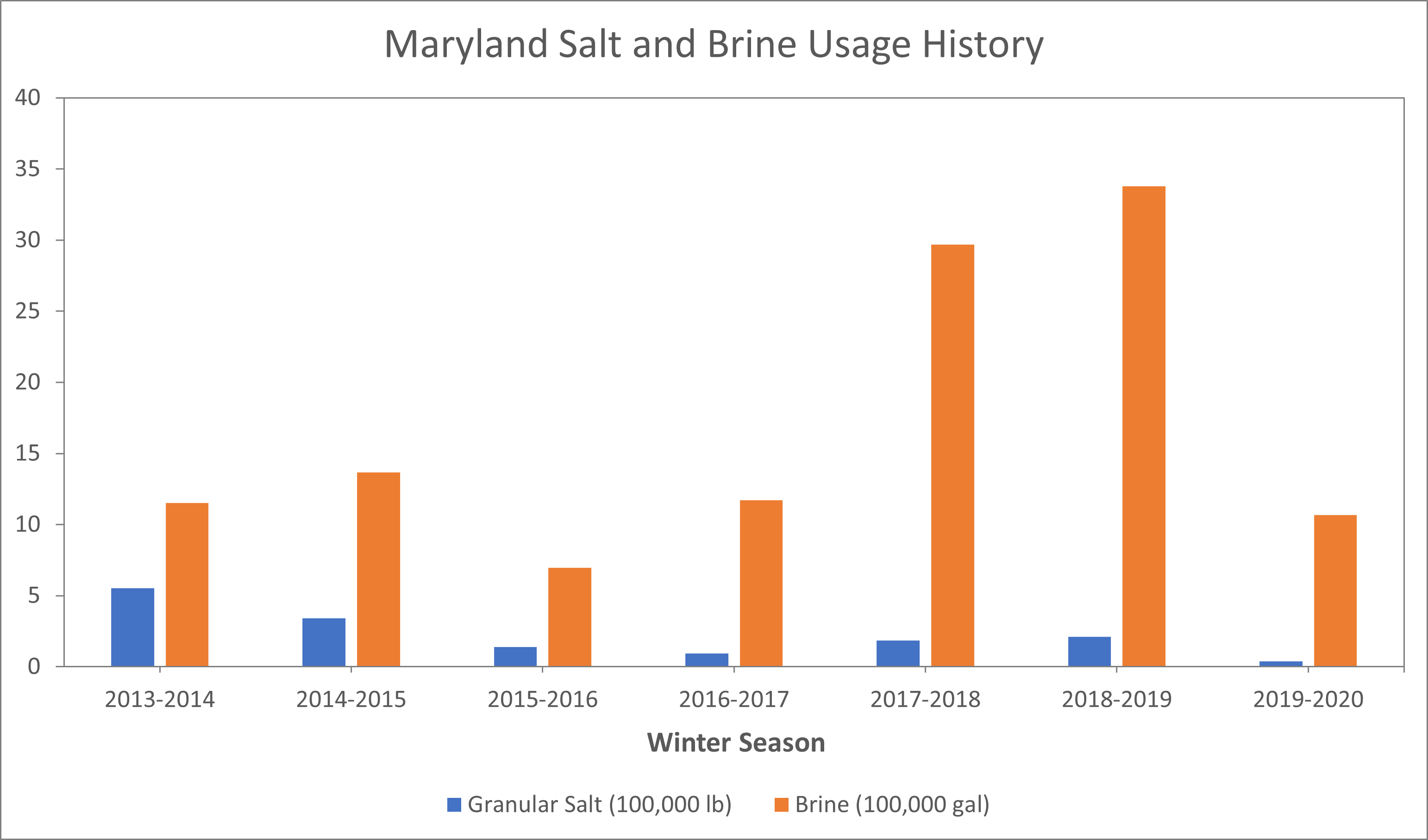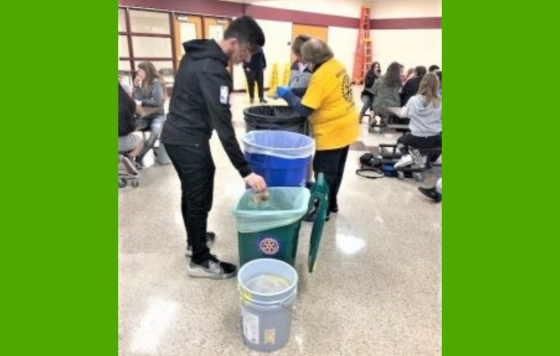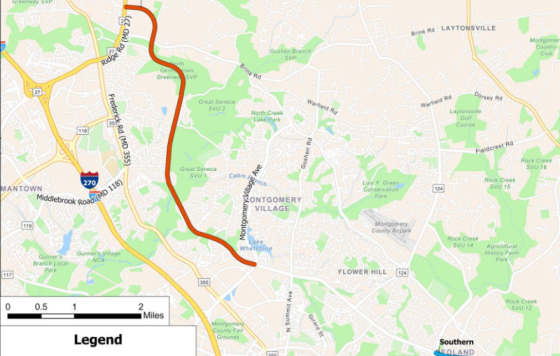
In the United States, more than 85% of road salt is used in the New England, Great Lakes, and Mid-Atlantic regions (Road Salt in USA). This road salt is typically purchased from the Department of Transportation through bids. However, states must develop regulations preventing salt pollution at the local level (Rasch). Unfortunately, only a few states have policies regarding the recovery and disposal of road salt (Rasch). As a result of this lack of government oversight, private well users are burdened with the responsibility to identify salt pollution and mitigate its harmful consequences, such as corrosion (Pieper et al.). This section will delve into the details of Maryland’s salt management practices and compare them to the different levels of road salt regulation and best practices (or lack of) across other states.
Maryland
The Maryland State Highway Administration (MD SHA) has reduced road salt usage by 50% over the past three years. This achievement is the result of the implementation of best practices, including: [Winter Salt]
-
Pre-wetting salt and pre-treating roads with brine
-
New technology
-
Requiring training for anti-icing equipment operators
Despite these improvements, the state acknowledges that there is still more that can be done to reduce salt pollution. The Maryland Department of the Environment (MDE) is currently working on certification programs for salt applicators and property owners that includes:
-
Best management requirements in the SHA National Pollutant Discharge Elimination System (NPDES) Industrial and Municipal Permits, which will be issued by the MDE to the SHA and its contractors
-
Fines and charges for failure to implement best management practices
Furthermore, the MDE will add county salt management plans that will provide guidance on best practices to the next generation of Phase 1 MS4 permit. Plans for this include:
-
Programs for evaluation of equipment and methods
-
Creating local “salt academy” training programs for anti-icing operators
-
Salt best management education and outreach for residents
-
A system for tracking and reporting salt application
On top of all of this, the MDE is also working to develop total maximum daily loads (TMDL) for chlorides and plans on issuing these within the next 2 years. If these TMDLs are implemented, the MD SHA will be legally required to meet a set level of road salt usage or face heavy fines if they do not comply (MDOT SHA). Currently, three Maryland waterways are scheduled for the chloride TMDLs: Black River, Gwynn Falls, and Little Patuxent River.
Despite the improvements and plans for salt pollution reduction, there is still a lot that needs to be addressed, especially with groundwater and well management. While new wells must be tested and issued a Certificate of Potability (COP) by the Department of Environmental Protection and Sustainability (EPS), their maintenance is left entirely up to property owners after the COP is issued (Baltimore County Govt). Furthermore, some areas, such as Baltimore County, are not processing new claims for home well water road salt pollution, and most well owners do not test their wells.
Other states
Different states have road salt policies with varying levels of sophistication, with some states having no policy regarding road salt (Rasch). Looking to other states as an example, we can see:
-
Maine, New York, Vermont, Virginia, and Wisconsin have the most detailed policies regarding salt application rates and techniques” (Rasch)
-
While many states do not closely regulate, Massachusetts has a notably detailed storage plan that specifies materials, dimensions, and construction techniques for salt storage sheds, and requires that sheds are constructed with impervious sealed floors, controlled drainage, and solidly constructed walls and roofs” (Rasch)
-
New York, Vermont, and Wisconsin set salt and sand application rates based on pavement temperatures and thickness of snow or ice (Rasch)
-
Wisconsin uses a winter weather information system in the decision-making processes for snow and ice removal (Rasch)
-
Washington maintains about 95% of state highways without road salt through an informal “no salt” policy (Rasch)


